Iraq’s Kurdish Jews look to the future with hope and scepticism
Kurdish Iraqi Jews now have a representative in government, but few remain from a once vibrant community
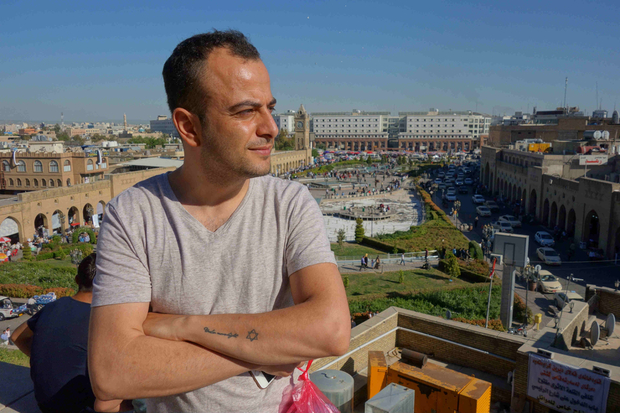
ERBIL, Iraq – Growing up in Erbil, the capital of Iraq’s autonomous Kurdistan region, Taha Smith and his best friend were inseparable.
Long days of football and tag evolved into international adventures – as teenagers they vagabonded around Europe, eventually finding jobs and staying a few years.
Lifelong confidants, it was not until recently each revealed one anecdote: each was Jewish.
“He never told me. I never told him,” said 30-year-old Smith, who revealed his ancestral religion to his best friend only before marrying the man’s sister earlier this year. “It was crazy for me. We were so close.”
The scenario would perplex Smith’s ancestors.
Jews have inhabited Mesopotamia for over 2,500 years and throughout the rise of Islam and into the twentieth century, mosques and synagogues, like the one Smith’s grandparents attended in central Erbil’s Citadel, enjoyed a cordial coexistence.
Centuries of amicability decayed, however, when in early June 1941 Nazi-inspired anti-semitism in Baghdad encouraged rioters to loot and destroy Jewish homes and shops during the Jewish Shavuot festival.
Known as the Farhud, the two-day pogrom left nearly 200 dead and a community traumatised.
A few years later, the establishment of Israel fanned the embers of anti-semitism in Iraq. In response, Israel organised Operation Ezra and Nehemiah, a 1951 airlift that granted Israeli citizenship to Iraqi Jews who felt threatened.
In just two years, around 120,000 Iraqi Jews fled to Israel.
Today, Jews in Baghdad number in single digits at most, with the BBC reporting in 2011 that just seven remained.
This figure stood at 80,000 just 100 years ago, according to a 1917 Ottoman census.
Hidden congregation
In Iraqi Kurdistan, which prides itself as a bastion of tolerance in the region, and which will vote in an independence referendum in September, a higher, yet debated, number reside.
As many have converted to Islam and Christianity over the years and others pose as Christians and Muslims, statistics are unclear and call into question what defines a “Jew”.
Mordechai Zaken, historian and former adviser to Israeli Prime Minister Benjamin Netanyahu, has said that most of the several dozen families that had some distant family connection to Judaism immigrated to Israel in the aftermath of the Gulf War.
“Most of these people are Muslim Kurds who perhaps have a grandmother or great grandmother of Jewish origin who converted to Islam two or three generations ago,” he told the Jerusalem Post.
Decades into life without a Jewish support system – synagogues, rabbis, collective holiday celebrations – the once flourishing sense of Jewish community has faded.
Additionally, incidents reminding Jews to proceed with caution have not been consigned to the 20th century.
In 2012, Mawlud Afand, the publisher of the now discontinued Israel-Kurd magazine, which one Sulaimaniya man remembers buying covertly “like [he] was buying cocaine,” was kidnapped and imprisoned in Iran after repeated warnings to cease publication, according to those close to him. He was released in 2015.
Law of Minorities
A seemingly progressive development came in 2015 when the Kurdish Regional Government (KRG) passed the Law of Minorities, which gave a handful of minority religions – Zoroastrianism, Yarsanism and Judaism among others – the right to official representatives in the KRG through the Ministry of Endowment and Religious Affairs.
The Jewish representative appointed by the KRG was Sherzad Mamsani, a man who says he lost his right hand in a 1997 bombing in which he says he was targeted for his faith.
My father was so happy he cried at the first mention of a Jewish representative
– Anonymous, Kurdish Jew
Chief among his goals, he said, is the restoration of the region’s Jewish historical sites, erection of synagogues, and the carrying out of a public relations effort to improve the perception of Jews.
One Kurdish Jew, who did not want to give his name, remembers vividly his father’s reaction when he first heard the news of Mamsani’s appointment.
“My father was so happy, he cried at the first mention of a Jewish representative,” he said.
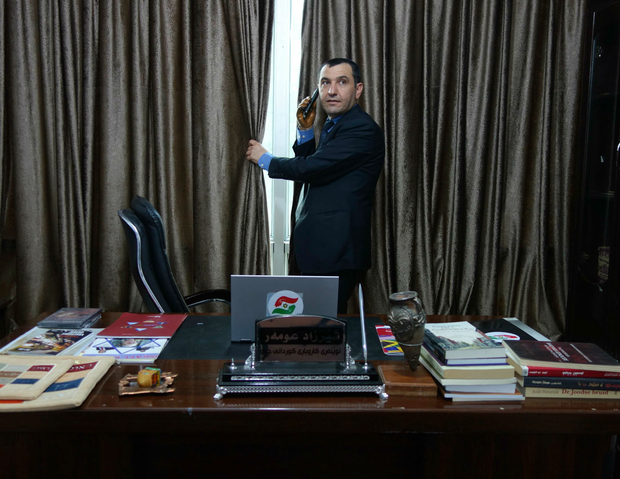
“I want to remove the bad image for the Jews,” said Mamsani, at an Erbil cafe in April.
“I want people to know that Jewish people are not dangerous.”
But two years into his post, Mamsani has struggled with his own image in Jewish communities.
I want people to know that Jewish people are not dangerous
– Sherzad Mamsani, Jewish representative in the KRG
Just months after his appointment, Zaken told the Jerusalem Post that Mamsani was “someone who does not distinguish between truth and lies in his eagerness,” adding that his “publicity campaign” is “causing confusion” and “damaging the KRG”.
Zaken, the author of Jewish Subjects and Their Tribal Chieftains in Kurdistan, accused Mamsani of inflating the number of Jews in Kurdistan for political gain.
Controversial census
Most recently, Mamsani has controversially undertaken a mission to conduct a census of Jewish families in the region by aggregating documents, an initiative he once described in a 2016 Times of Israel interview as “insanity” and an idea that would let “enemies find us and kill us little by little”.
“Information can be bought in Iraq,” worries one Jewish man with his information, given over by a family member, now on file.
While some families have cooperated, others have balked at what they see as a double standard initiated by a leader who claims to have, but has not proved to have, Jewish roots and official connections.
KRG’s Director of Relations and Religious Coexistence, Mariwan Naqshbandy, confirmed to MEE that Mamsani was granted his post, which is unpaid, without presenting paperwork or community input, but simply after putting himself forward for the role.
One Jew who has met Mamsani, speaking on behalf of his family, said: “We didn’t turn over paperwork. I haven’t seen good or bad things yet – I just don’t trust him.
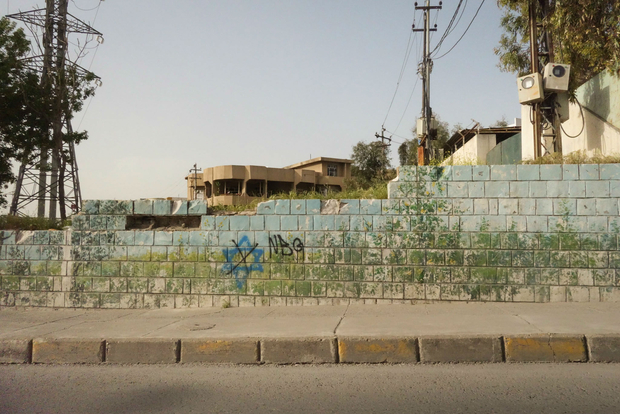
“Lots of Jewish people are asking who he is. They don’t want to show their documents. They want proof [of who he is] before coming out.”
But confirmation won’t be coming from what many believe to be the most validating source: Israel.
“Sherzad is not an Israeli citizen, has no [sic] an Israeli passport and has no connection to the Israeli government or any official standing in Israel,” Margalit Vega, the director of Israel’s Gulf States Department at the Foreign Ministry, wrote in an email to MEE.
Earlier this year, Mamsani temporarily stood down for what he called “some reasons,” and he himself admits to having many critics.
“Most of my community [is] anti-Sherzad,” said Mamsani, who repeatedly stresses that he’s not a politician.
The Jewish representative seems to be most favourably viewed on foreign trips and in external publications, where he is painted as a brave champion for religious minorities who, as Mamsani puts it, “stands in the centre of the fire among radical Islamic countries”.
Murder plots?
Many interviews mention his claims that there have been multiple attempts at his life, one which he says is the reason he has a prosthetic right hand.
Last year CNN featured Mamsani in a review of Iraq’s “Minorities on the edge of extinction”.
Also last year, in a New York Times piece summarising a Kurdish delegation’s lobbying trip to Washington, Mamsani, who attended, is named a “top official” taken “in an open appeal to build support in Israel for the Kurdish effort”. (According to Mamsani, he exchanged gifts – a yarmulke for an American flag – with Arizona Congressman Trent Franks.)
For progressive Kurds, eager to applaud KRG steps toward improving minority relations – for example, out of 111 parliamentary seats, five each must be filled by Turkmen and Christian parties and a minimum of 30 percent of all seats must be held by women – appointments like Mamsani’s set Kurdistan further apart from rigid Iraq.
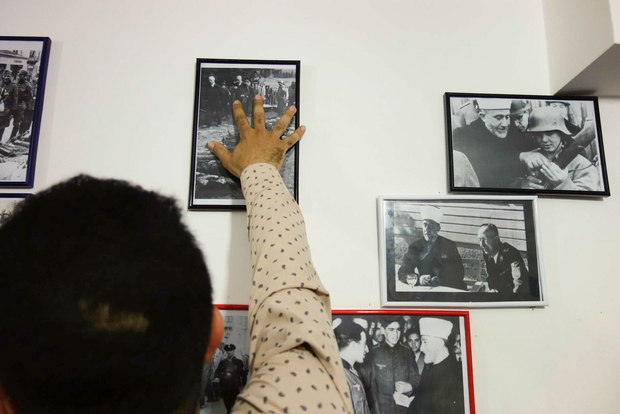
“I saw [Mamsani’s] work on Facebook and Instagram and what he does for Jews – how he presents for Jewish people,” said Aria Youssef, a Syrian Kurdish women’s rights advocate who attended one of Mamsani’s Jewish shabbat dinner gatherings in Erbil.
“It was interesting to see the reality – not photos – of how he can present Jewish people in Kurdistan.”
While Kurdistan is enjoying a period of peace, decades of on-again-off-again conflict – in less than 30 years Kurds have lived through the Iraq-Iran War, Saddam Hussein’s massacre of Kurds, two American invasions of Iraq and the rise of the Islamic State group – have disciplined many to default to caution.
Kurdish people love Jewish people and our government loves Israel
– Taha Smith, Kurdish Jew
Even the now open Smith, who sports a Star of David tattoo on his right arm, acknowledges a future of unknowns.
“I trust my government. I trust the [Kurdish] Peshmerga [military forces]. Kurdish people love Jewish people and our government loves Israel,” said Smith. “But of course, we don’t know what is going to happen next.”
Israeli support
Israel is a vocal and much-welcomed supporter of Kurdish independence, and Kurdistan is sometimes dubbed a “Second Israel”.
Americans are also held in high esteem by Kurds, increasingly so since American bombs deterred the Islamic State group’s advance toward Erbil in the summer of 2014.
With strong international alliances, and a well-policed, checkpoint-heavy interior, it is not everyday security that concerns religious minorities here but the area’s susceptibility to random volatility and the spread of violence from outside.
In 2014, after a few years’ lull in anti-Yazidi violence, Kurdistan’s Yazidis faced a sporadic and barbaric genocide at the hands of IS.
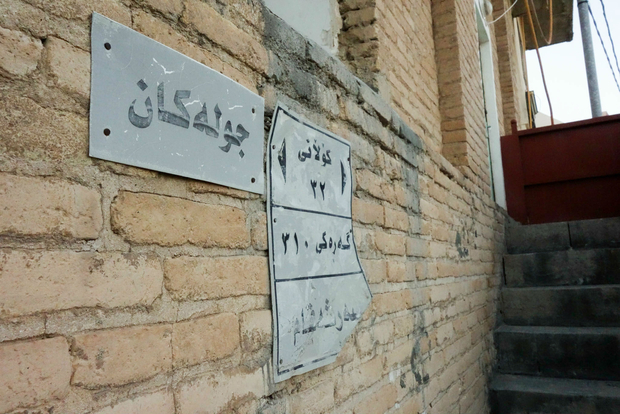
“If someone sees me comment on a [Jewish] Facebook page, maybe the time will come [when that causes a problem], God forbid,” said one man. “Kurdistan is like a nest of spies and moles.”
While Kurdish Jews feel protected as Kurds, they would welcome further support from Israel and the US, collectively home to around three-quarters of the world’s Jewish population.
“We hope we can make a connection with the US or Israel. We don’t need to go there,” said one Jewish Iraq-Iran War veteran, distancing himself from Kurds who have posed as Jews to gain Israeli citizenship over the years.
If Israel sent just two rabbis to Kurdistan, you would see a line in front of the Ministry
– Anonymous, Kurdish Jew
“Even if we have our name at the US embassy [in Erbil], even if they give us a piece paper that gives us protection if something happens again – that is enough.”
In terms of spiritual foundations, however, it’s clear which nation has the best shot of bringing the community out of the woodwork.
“If Israel sent just two rabbis to Kurdistan, you would see a line in front of the Ministry [of Religion]. They could say we are official. Here are our passports. Here is our ID,” said one Erbil Jew. “If that happened, you’d see a crowd like never before.”
Category: Iraq



